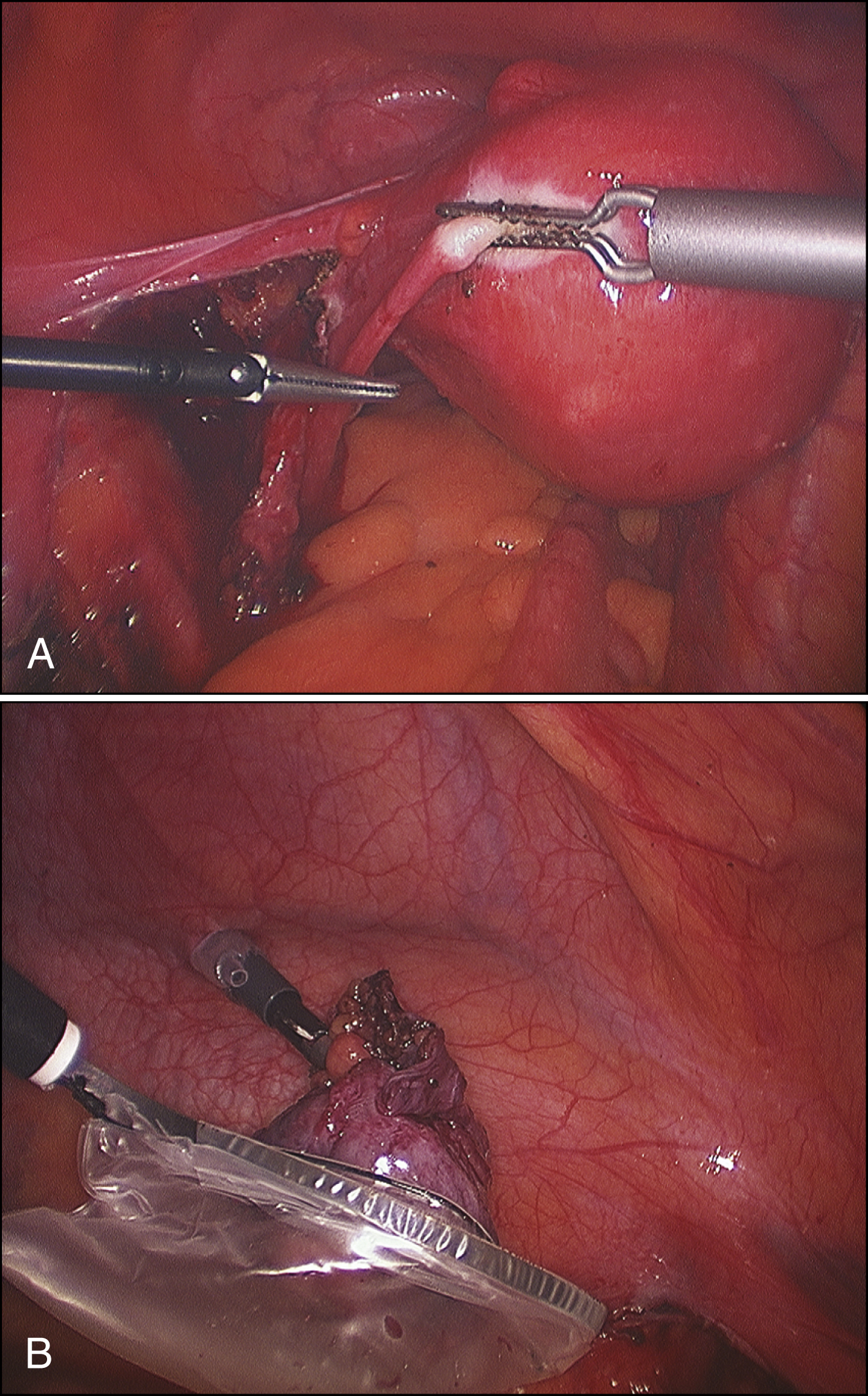oophorectomy /ō′əfərek″təmē/ [Gk, oophoron, ovary, ektomē, excision] , the surgical removal of one or both ovaries. It is performed to remove a cyst or tumor, excise an abscess, treat endometriosis, or in breast cancer to remove the source of estrogen, which stimulates some types of cancer. If both ovaries are removed, sterility results, and menopause is abruptly induced; in premenopausal women one ovary or a part of one ovary may be left intact unless a malignancy is present. The operation routinely accompanies a hysterectomy in menopausal or postmenopausal women. Regional or general anesthesia is used. Unless a malignancy is present, estrogen may be given to treat the unpleasant side effects of the abrupt onset of menopause. Also called ovariectomy.

